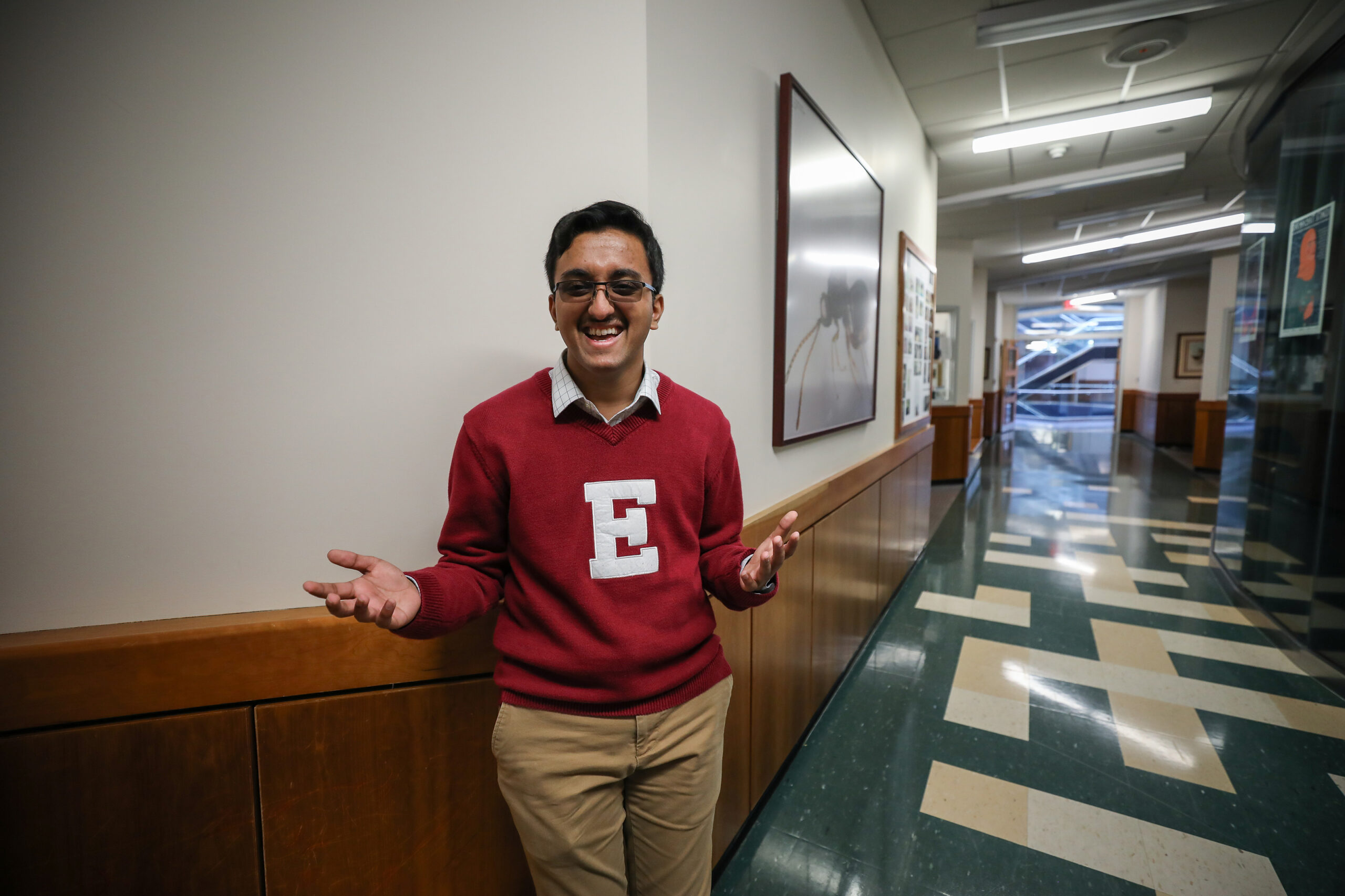Ayush Noori

As a middle schooler in Seattle, Washington, Ayush Noori ’20 came across Exeter’s Deed of Gift during his online search for information about the school. In that founding document’s most famous phrase — knowledge without goodness is dangerous — Ayush found what he was looking for: a place that would challenge him academically, but also give him the tools he needed to be “a global citizen, someone who can give back to the community.”
But while Ayush felt strongly that the Academy was the right place for him, he still struggled with the decision to attend. “Coming to Exeter was challenging for me because I knew I would be leaving my grandmother behind,” he says. His grandmother has a neurodegenerative condition called progressive supranuclear palsy (PSP), which he dubs “Parkinson’s on steroids,” and Ayush was very involved in her care.
“We would stay up until 2 or 3 at night and be together, and I would put her to bed. Leaving that behind was very challenging for me,” he says.
His grandmother’s experience also inspired Ayush to think of all the other people with conditions like hers, and what he could do to help them. “Alzheimer’s, Parkinson’s, ALS — neuro-degeneration is a growing epidemic,” he says. In Boston, scientists at Massachusetts General Hospital were conducting high-level research into the field, and he knew Exeter would give him the fundamental science education he needed to understand and engage in that research.
Ayush’s mother worried about sending her son so far away from his family, including his other siblings. Then fate (or serendipity) intervened: The summer before Ayush’s prep year, his father got a job in Boston, and Ayush and his dad moved to an apartment in Exeter. Now a four-year senior day student and proctor affiliated with Ewald Hall, Ayush says he has a “perfect balance” between boarding and day student life.

From the moment he arrived on campus, Ayush knew he wanted to be involved in Student Council. After serving as chair of the student life committee and later as Student Council secretary, he won election as president, and has worked on initiatives such as the Red Bikes program, a sustainable bike-share system he helped to launch last year.
Through Student Council, Ayush says, he’s been able to give back to the community by helping turn student vision into reality, with “tangible changes” that impact the quality of life on campus. “That’s really rewarding — to know that the work we’re doing right now will be felt by Exonians long after we’re gone.”
Since his lower year, Ayush has sung tenor in the Exeter Concert Choir, and he also sings in a couple of vocal chamber ensembles. “Singing for me is a therapeutic outlet,” he explains. “It’s a way to release stress and manage the … intense workload at the Academy.”
At the same time, with the strong foundation of his science courses — he mentions the Bio 500 sequence, genetics and molecular genetics courses, and an independent senior study with Science Department chair Alison Hobbie — Ayush has made good on the promise he made to himself when he left his grandmother back at home.
For the past two years, he’s been a research assistant at Mass General, working in the Institute for Neurodegenerative Disease and as an intern in the MIND Data Science Lab. Part of his current research involves studying astrocytes and microglia, the support cells within the nervous system, to identify specific targets within the cells that could be used as therapeutic biomarkers. These are “proteins that you can monitor in patients and use the levels to detect Alzheimer’s disease,” Ayush explains, which could help with early detection and even treatment.
Last summer, Ayush was working in the lab in Boston when he got a call: His grandmother was dying and wasn’t expected to make it through the night. The average life expectancy for PSP is between five to seven years, he says, and his grandmother was diagnosed almost a decade ago. Ayush flew west to find her in the intensive-care unit, suffering from respiratory failure.
But after two weeks in the ICU, his grandmother’s health improved, and she and Ayush were even able to spend some time together enjoying the California coast near San Francisco, where she moved last year for treatment and care. Then she asked him to go back east, to the lab in Boston, and to his Exeter community.
“She said, ‘find me a cure,’” Ayush recounts. “She knows the research that I’m doing, and it’s partly what gives me the motivation and drive to do this challenging work, because I know that it has a direct impact on patients… It brings me closure and peace knowing that I’m doing something to play even a small part in a much larger battle.”
— Sarah Pruitt ’95


